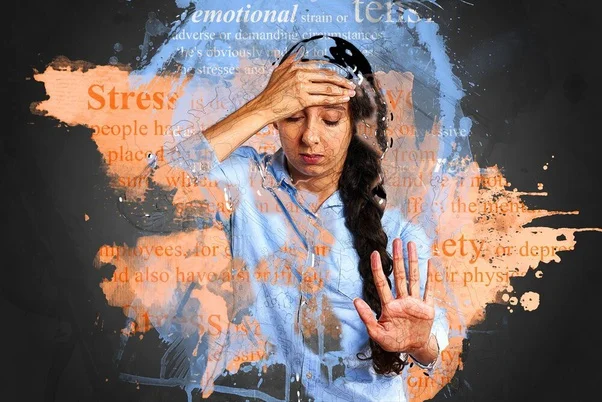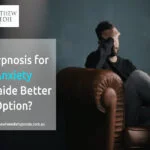Anxiety hypnosis Adelaide: Anxiety is one of the most common human experiences. That is related to different elements of a psychological, biological, and social order. Anxiety can quickly become a significant condition of misery, despite being a normal experience. Likewise, it is an experience that is often confuse with others (such as stress, anguish or fear). Which also generate discomfort.
Ironically, the reasons why anxiety is generated; or rather, not knowing these reasons, is one of the triggers of anxiety. Next, we will discuss various meanings of anxiety and their connections to other related terms and finally address the question: is anxiety natural for no reason? Let’s look at it
Anxiety, fear, stress, or anguish?
Since the beginning of the 20th century, anxiety has been placed as one of the main subjects of study in psychology, and in related areas, such as medicine or physiology. The latter has generated the problem of accurately defining “anxiety” , and from there adequately addressing it. Specifically in psychology, its different theoretical currents often face contradictions and overlaps with which they have ended up mixing anxiety with anguish, stress, fear, fear, tension, and others.
In fact, in the diagnostic manuals for the classification of mental disorders, and in their translations, anxiety has frequently been mix with the concepts of anguish, stress or fear , through which different psychological and physical manifestations are grouped.
From Anguish to Anxiety
According to Adelaide hypnosis, the concept of “anguish” had been relate to the predominance of Physical reactions: paralysis, awe, and sharpness when capturing the causing phenomenon. Contrary to that of “anxiety“, which had been define by the predominance of psychological symptoms: the feeling of suffocation, danger or shock; accompanied by the rush to find effective solutions to the feeling of threat.
Anxiety is currently define as a response that generates psychological tension accompanies by a somatic correlate , which is not attributable to real dangers, but appears as a persistent and diffuse state close to panic. It is related to future dangers, frequently undefinable and unpredictable. Through this context, both hyperactivity and reaction cause fear to paralyze.
It is an experience different from fear, because fear presents itself with present, define and localize stimuli, with which it is an experience that has a rational explanation, and that tends more to activate than to paralyze. In the same sense, anxiety has been closely relating to fear, because it is causes by a clearly identifiable stimulus . In both cases , the individual demonstrates clearly the stimuli or circumstances they make.
From Anxiety to Stress
Finally we have found the problem of differentiating between anxiety and stress. Some authors suggest that this last concept has come to replace anxiety, both in research and interventions. Others believe that stress is now the term that refers to the physiological response, and anxiety is what is related to the subjective response. The term stress is perhaps the most difficult to define at present, since it has recently been used almost indiscriminately by many areas of study.
In any case, those who study it tend to agree that stress is an experience related to important changes in the person’s environment ; and with feelings of frustration, boredom, or lack of control. It is then an adaptive process that triggers different emotions and that allows us to relate to the environment, as well as face its demands. However, it is an experience that can also be generalized and that refers to the tensions that our societies are currently experiencing.
Related Article: How can I Quit Smoking?
Anxiety for no reason?
If we summarize all of the above, we can see that feeling anxiety for no apparent reason is not only normal, but is a condition of the anxiety experience itself. It is a situation that has a psychological origin and a physical correlate , so this lack can also be a goal of therapeutic work.
In this sense, and since anxiety has been recently studied in relation to the physical correlate, there is an important part of psychology and medicine that have addressed it as a multicausal phenomenon, where different triggering events can be identified. Both psychic and social and physiological, for example, from traumatic events to frequent consumption of psychotropic substances .
If it is normal, is it avoidable?
As we have seen, there are experiences of discomfort that are part of human beings and that can be adaptive. Both physically and psychologically. These are discomforts that manifest at the psychic and somatic level. But which are not isolats. In permanent connection with the demands and characteristics of the environment.
The problem is when these discomforts no longer act as adaptive or stabilizing mechanisms. But appear before practically all the circumstances that surround us, including circumstances without concrete reality. This is a problem because, if the reason for the discomfort has to do with everything. That is around us (even with the most daily and most intimate), it easily generates the feeling that there is no end. That is, it is generalize.
This is when it comes to anxiety that has become cyclical. which can cause permanent or repetitive pictures of suffering. As well as affect our daily activities, our relationships and our life processes.
In short, anxiety can be a functional reaction of our organism. It can keep us alert to different stimulations, whether positive or negative. Yet it can cause severe distress if this occurrence is very normal. Because of a vague perception of danger in the most common circumstances.
One of the first things to counteract is to deal with this feeling precisely of generalized threat. As well as to explore the apparent lack of motives that generate it.
Related Article: Top 10 Foods Highest in Protein – Protein-Rich Foods















